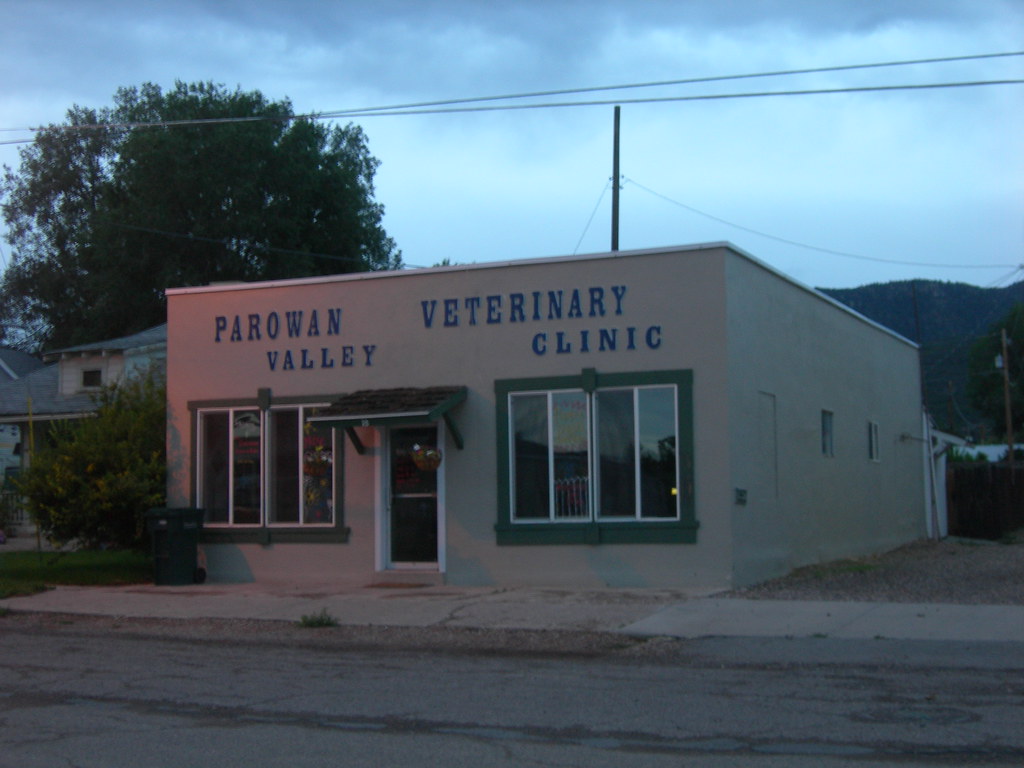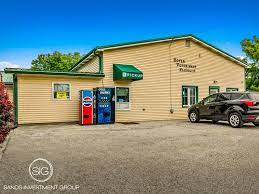Indiana Vet Clinics For Sale : 5 Premier Listings

Welcome to the dynamic world of Indiana Vet Clinics For Sale , where opportunities abound for both buyers and sellers of veterinary clinics. In this article, we delve into the intricacies of the thriving industry, exploring the factors fueling clinic sales and the essential considerations for potential investors. Whether you’re a seasoned practitioner looking to transition or a prospective buyer eyeing a profitable venture, this comprehensive guide will navigate you through the process of buying or selling vet clinics in Indiana. Join us as we uncover the key aspects, share successful case studies, and provide insights that will shape the future of the veterinary landscape in the Hoosier State.
Introduction to the Indiana Vet Clinics For Sale :

The Indiana veterinary market is a dynamic and evolving landscape, reflecting the broader trends in the healthcare industry. As the demand for quality pet care continues to rise, the state presents a fertile ground for veterinary clinics, making it an attractive arena for buying and selling practices. Understanding the nuances of this market is essential for both seasoned practitioners and potential investors seeking to capitalize on the thriving pet care sector.
Indiana’s pet ownership rates have been steadily increasing, with a growing awareness of the importance of veterinary care in ensuring the well-being of companion animals. This surge in demand has not only elevated the standards of care but has also created opportunities for entrepreneurs looking to establish or expand their presence in the veterinary domain.
The state’s diverse demographic and economic factors contribute to the unique dynamics of its veterinary market. From urban centers to rural communities, there is a varied landscape of pet ownership patterns, veterinary needs, and market saturation. Recognizing these distinctions is crucial for anyone considering entering or exiting the veterinary business in Indiana.
In addition to the demographic factors, the regulatory environment plays a significant role in shaping the veterinary market. Understanding licensing requirements, compliance standards, and other legal aspects is paramount for both buyers and sellers. The article will further explore these regulatory considerations to provide a comprehensive overview of the environment in which vet clinics operate.
Factors Driving the Sale of Indiana Vet Clinics For Sale :
The decision to sell a veterinary clinic can be influenced by various factors, and understanding these drivers is essential for practitioners contemplating a sale. In the context of Indiana, several key factors contribute to the increasing trend of vet clinic sales.
- Retirement and Succession Planning: Many veterinary practitioners in Indiana reach a point in their careers where retirement becomes a consideration. The desire to transition into a new phase of life often prompts the sale of their clinics. Succession planning, or the lack thereof, plays a crucial role in determining the timing and method of the sale.
- Industry Consolidation: The veterinary industry in Indiana, like many others, is witnessing a trend of consolidation. Larger corporate entities or regional groups may express interest in acquiring established clinics to expand their footprint and leverage economies of scale. This trend can present attractive opportunities for clinic owners looking to capitalize on the consolidation wave.
- Economic and Market Trends: Economic factors and shifts in market trends can influence the decision to sell a vet clinic. Changes in consumer spending patterns, economic downturns, or shifts in pet ownership demographics can impact the financial viability of a clinic. Owners may opt to sell during favorable market conditions or to mitigate potential challenges.
- Personal or Lifestyle Changes: Individual circumstances, such as health issues, changes in personal priorities, or lifestyle choices, can prompt clinic owners to consider selling their practices. Life events or a desire for a different work-life balance may drive the decision to exit the veterinary business.
- Competitive Pressures: Intense competition in certain regions or changes in the competitive landscape may lead clinic owners to assess their position in the market. Selling to a larger entity or merging with another clinic can be strategic moves to navigate competitive pressures effectively.
- Technology and Industry Advancements: The rapid evolution of veterinary medicine and technology may motivate owners to sell to those who can invest in and implement the latest advancements. Buyers looking to stay at the forefront of industry trends may see acquisitions as a way to gain a competitive edge.
Understanding the Process of Indiana Vet Clinics For Sale :
Selling a veterinary clinic is a multifaceted process that requires careful planning, thorough assessment, and effective communication. Owners looking to transition out of their practice in Indiana should navigate this process strategically to maximize value and ensure a seamless transition. Here is a step-by-step guide to understanding the key components of selling vet clinics:
- Valuation and Financial Assessment: Before listing a clinic for sale, owners need to conduct a comprehensive financial analysis. This includes assessing the clinic’s profitability, cash flow, and overall financial health. A professional valuation may be necessary to determine a fair market price, taking into account tangible assets, client base, location, and potential for growth.
- Legal and Regulatory Due Diligence: Ensuring compliance with all legal and regulatory requirements is crucial for a successful clinic sale. This involves reviewing licenses, permits, contracts, and any potential liabilities. Sellers must address any legal issues proactively to avoid complications during the sale process.
- Preparation of Clinic Documentation: Sellers should organize and prepare essential documentation to present a clear picture of the clinic to potential buyers. This includes financial statements, client records, staff details, and any relevant contracts. Transparent and well-organized documentation builds trust and facilitates a smoother transaction.
- Confidentiality and Marketing Strategy: Maintaining confidentiality during the selling process is essential to prevent disruptions to the clinic’s operations and staff morale. Owners should develop a targeted marketing strategy to reach potential buyers discreetly. This may involve engaging with business brokers, leveraging industry networks, and utilizing online platforms.
- Negotiation and Deal Structure: Negotiating the terms of the sale requires a balance between the interests of the seller and the buyer. Key aspects include the sale price, payment terms, transition assistance, and any post-sale obligations. Structuring a deal that aligns with both parties’ goals is critical for a successful transaction.
- Due Diligence from Buyers: Buyers will conduct their due diligence to assess the clinic’s viability and potential risks. Sellers should be prepared to provide additional information and address any concerns raised during this process. Open communication and transparency enhance the buyer’s confidence in the transaction.
- Transition Planning: A well-thought-out transition plan is essential for a smooth change of ownership. This involves communicating the sale to staff and clients, ensuring continuity of patient care, and providing support for the new owner during the initial stages of ownership.
- Legal Counsel and Contracts: Engaging legal professionals experienced in veterinary practice sales is crucial. Attorneys can assist in drafting and reviewing contracts, addressing legal complexities, and ensuring that the terms of the sale align with both parties’ expectations.
- Closing and Post-Sale Support: The finalization of the sale involves the closing process, where legal documents are executed, and ownership is officially transferred. Sellers may also provide post-sale support to facilitate a successful transition for the new owner, which can include training, ongoing consultation, or assistance with client retention strategies.
Legal and Regulatory Compliance: Navigating Licensing and Permit Requirements

In the veterinary industry, adherence to legal and regulatory requirements is paramount to operate a clinic successfully. When acquiring a veterinary clinic in Indiana, it’s crucial to navigate various licensing and permit requirements to ensure compliance with state and local laws. Here’s a detailed look at the key aspects:
State Licensing: Indiana, like most states, requires veterinary clinics to obtain licenses to operate legally. The Indiana State Board of Animal Health (BOAH) oversees the licensing process for veterinary clinics. Prospective buyers must ensure that the clinic they intend to purchase holds a valid license and is in good standing with the BOAH. This typically involves submitting an application, providing proof of qualifications, and paying the requisite fees.
Professional Credentials: Apart from clinic licensing, it’s essential to verify the professional credentials of the veterinarians working at the clinic. Ensure that they hold valid licenses to practice veterinary medicine in Indiana. This verification can usually be done through the Indiana Professional Licensing Agency (PLA) website.
Permit Requirements: Depending on the location and specific services offered by the clinic, additional permits may be necessary. For example, if the clinic plans to offer boarding services or handle controlled substances, separate permits may be required. Buyers should thoroughly review local zoning laws and regulations to determine any additional permits needed for the clinic’s operations.
Compliance with Health and Safety Regulations: Veterinary clinics must comply with health and safety regulations to protect both animal patients and human clients. This includes maintaining proper sanitation protocols, handling and disposing of medical waste appropriately, and ensuring the safety of medications and equipment. Buyers should conduct thorough inspections of the clinic’s facilities to assess compliance with these regulations.
Contractual Obligations: When acquiring a veterinary clinic, buyers inherit any existing contractual obligations, such as leases, service agreements, or employment contracts. It’s essential to review these contracts carefully to understand the terms and obligations involved. This includes ensuring that the clinic’s lease agreement complies with zoning laws and that there are no outstanding legal issues that could affect the transfer of ownership.
Insurance Coverage: Adequate insurance coverage is essential for protecting the clinic against potential liabilities. Buyers should review the clinic’s current insurance policies, including malpractice insurance, property insurance, and liability coverage. It may be necessary to update or adjust these policies upon taking ownership of the clinic to ensure adequate protection.
Assessing Facility and Equipment: Understanding the Condition and Value of Clinic Assets
Before finalizing the purchase of a veterinary clinic in Indiana, it’s essential to conduct a comprehensive assessment of the facility and equipment. This step ensures that the buyer understands the condition and value of the clinic’s assets and can make informed decisions regarding the investment. Here’s a detailed breakdown of what to consider:
Facility Evaluation: Begin by assessing the physical condition of the clinic’s building and premises. Look for signs of wear and tear, structural issues, and any necessary repairs or renovations. Consider factors such as the size and layout of the facility, parking availability, accessibility for clients and patients, and compliance with building codes and zoning regulations.
Equipment Inspection: Veterinary clinics rely heavily on specialized equipment to provide quality care to patients. Evaluate the condition and functionality of essential equipment, such as exam tables, surgical instruments, diagnostic tools (X-ray machines, ultrasound machines, etc.), anesthesia machines, and laboratory equipment. Determine whether any equipment requires maintenance, repairs, or upgrades and factor these costs into the overall valuation of the clinic.
Technology Integration: In today’s digital age, technology plays a significant role in veterinary practice management. Assess the clinic’s use of technology, including electronic medical records (EMR) systems, practice management software, and communication tools. Determine whether the clinic’s technology infrastructure is up-to-date and capable of supporting efficient operations and client communication.
Inventory Management: Inventory management is crucial in veterinary clinics to ensure adequate supply of medications, vaccines, and other medical supplies. Evaluate the clinic’s inventory management practices, including ordering procedures, stock levels, expiration date tracking, and storage conditions. Assess the value of existing inventory and consider how it aligns with the clinic’s service offerings and patient needs.
Compliance with Regulatory Standards: Veterinary clinics must comply with regulatory standards related to facility cleanliness, equipment maintenance, and infection control. Evaluate the clinic’s adherence to these standards and identify any areas for improvement. Ensure that the clinic has protocols in place for sterilization, disinfection, and biohazard waste disposal to maintain a safe and sanitary environment for patients, staff, and clients.
Long-Term Maintenance and Upkeep: Consider the long-term maintenance and upkeep requirements of the facility and equipment. Factor in ongoing maintenance costs, equipment warranties, and the need for future upgrades or replacements. Develop a plan for proactive maintenance to prevent costly repairs and downtime in the future.
Negotiation Tactics: Tips for Successful Purchase Price and Terms Negotiations

Negotiating the purchase of a veterinary clinic in Indiana requires careful planning, strategic thinking, and effective communication. Both buyers and sellers aim to achieve their respective goals while reaching a mutually beneficial agreement. Here are some negotiation tactics to help buyers navigate the process successfully:
Conduct Market Research: Before entering into negotiations, buyers should conduct thorough market research to understand the current market conditions, trends, and comparable sales. Knowing the market value of similar veterinary clinics in the area provides buyers with leverage and a realistic baseline for negotiations.
Define Clear Objectives: Buyers should clarify their objectives and priorities before entering into negotiations. Determine the maximum purchase price you are willing to pay, as well as any specific terms or conditions that are non-negotiable. Having clear objectives allows buyers to focus their negotiation efforts and make informed decisions throughout the process.
Build Rapport with the Seller: Establishing a positive rapport with the seller can help facilitate negotiations and build trust between parties. Take the time to get to know the seller’s motivations, concerns, and goals regarding the sale of the clinic. Demonstrating empathy and understanding can create a more collaborative negotiating environment.
Highlight Value Proposition: During negotiations, emphasize the value proposition of your offer to the seller. Highlight your qualifications, experience, and plans for the clinic’s future success under your ownership. Clearly articulate how your vision aligns with the seller’s goals and objectives, making it more likely for them to accept your offer.
Be Flexible and Creative: Flexibility and creativity can be powerful negotiation tools. Be open to exploring alternative solutions and compromises that satisfy both parties’ interests. Consider offering incentives such as seller financing, earn-outs, or non-monetary benefits to sweeten the deal and overcome any obstacles.
Conduct Due Diligence: Thorough due diligence is essential before finalizing any purchase agreement. Verify the accuracy of the clinic’s financial statements, contracts, and legal documents. Identify any potential risks or liabilities that may impact the transaction and address them proactively during negotiations.
Seek Professional Guidance: Engage the services of experienced professionals, such as business brokers, attorneys, or financial advisors, to assist with negotiations. Their expertise and insights can provide valuable guidance throughout the negotiation process and help navigate any complex issues that may arise.
Maintain a Positive Attitude: Negotiations can sometimes become tense or adversarial, but it’s important to maintain a positive attitude and professional demeanor. Keep communication channels open, listen actively to the seller’s concerns, and focus on finding mutually beneficial solutions that satisfy both parties.
Indiana Vet Clinics For Sale Conclusion:
Navigating the process of acquiring a veterinary clinic in Indiana requires careful consideration of various factors, from legal and regulatory compliance to facility evaluation and equipment assessment. By following the outlined steps and conducting thorough due diligence, prospective buyers can mitigate risks and make informed decisions that set the stage for a successful ownership transition. From market analysis to negotiation tactics and transition planning, each aspect plays a crucial role in ensuring the clinic’s long-term success under new ownership. Ultimately, by prioritizing compliance, evaluating assets, and planning for the future, buyers can confidently pursue opportunities to acquire veterinary clinics and contribute to the health and well-being of animals in their communities.



Leave a Reply
You must be logged in to post a comment.